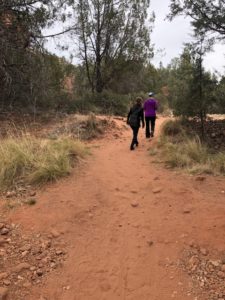 Human beings are genetically programmed to desire belonging and companionship, yet life is at its core a solitary journey. In response, each of us walks through life attracting and establishing relationships and deciding who and what is important. As adoptive families, one of our most important relationships–the one between parent and child didn’t happen by accident. We had to expend great energy, intention, and commitment to form our families.
Human beings are genetically programmed to desire belonging and companionship, yet life is at its core a solitary journey. In response, each of us walks through life attracting and establishing relationships and deciding who and what is important. As adoptive families, one of our most important relationships–the one between parent and child didn’t happen by accident. We had to expend great energy, intention, and commitment to form our families.
As hard as we work to create relationships, often we fall short in dedicating the necessary energy to sustain them. One of life’s biggest challenges is disciplining ourselves to take the steps, make the time and focus the effort to sustain relationships. It’s not enough to build them; we must also nurture them.
Make time to sustain relationships. It’s not enough to build them; we must also nurture them. Focus on the important things first, then fit in other things.
During our recent retreat in Sedona, my GIFT partners and I acted on our intention to be partners, colleagues, and friends. This required us to adjust busy schedules, arrange coverage to fulfill any ongoing responsibilities during our absence, and create understandings with our families. Certainly, this took effort, but the goal–and the result were well worth it.
As Intentional parents, how are you carving the time, focusing attention and engaging in activities–or moments–that feed your spirits and strengthen your family ties?
Think of specific choices that you made; which ones advanced your goal? Which ones fell flat? What patterns, assumptions, and complicating factors blocked your success? What habits kept you tethered to “old” outcomes? What “system” can you design that will best support you?
It might help to imagine this was a career or job goal; the same kind of strategies that serve us professionally can often be tweaked to serve us in relationships. (Remember to operate from the perspective of relationship not transaction!)
One simple practice which we used during our retreat was to set a daily intention. We each identified a single word to embody that intention, for example, forgiveness, serenity, joy, kindness, attunement, tranquility. Determine whatever word captures your intention and then walk through the day with that word as the framework through which you engage for the day. We chose to share our daily intention with one another. (Decide if you want to share yours with others.)
One of the most common impediments to goal achievement is lack of time and the stress that results.
Balance is an elusive and dynamic process. There is no single solution; there is no fixed solution. We build balance one choice at a time. Every “Yes” is also a “No.” For the next week, challenge yourself to be vigilant and intentional about saying yes to anything. Before you agree, pause.
Promise yourself that you will also identify what you would be declining. Take the time to weigh out the choices. Gain clarity, then choose. Feel the difference this makes in your decision process. How much extra time did it take? What benefits do you notice?
How might this practice–and the small pause it inserts–help avoid making decisions which are later regretted? How might it reduce stress? How might it improve relationships with others and yourself? How does it help you choose your priorities from a place of strength?
- Contact us: 1-800-653-9445.
- Listen to our podcasts: Adoption Matters: Real People. Real Life. Real Talk and Essentials of Adoption Attuned Parenting
- Watch our YouTube channel
- Read Books written by our coaches
- Click to learn more about Adoption Attuned Certified coaching!



We are all so BUSY and that sometimes serves as a great excuse to let our relationships slide. We all have friends that when getting together after a prolonged absence seems like it has been no time at all and we jump back in easily. On the other hand, other relationships may not have that easy way about them. Yet they are valued and worth our time. Set an intention to reconnect and nurture it despite it being more difficult and the business of life resists it. #Adoption #Adoptivefamilies #AAQ
Sometimes our most important relationships are the ones that we neglect. We “assume” they’ll remain steady and connected. Yet all relationships require attention and nurturing.